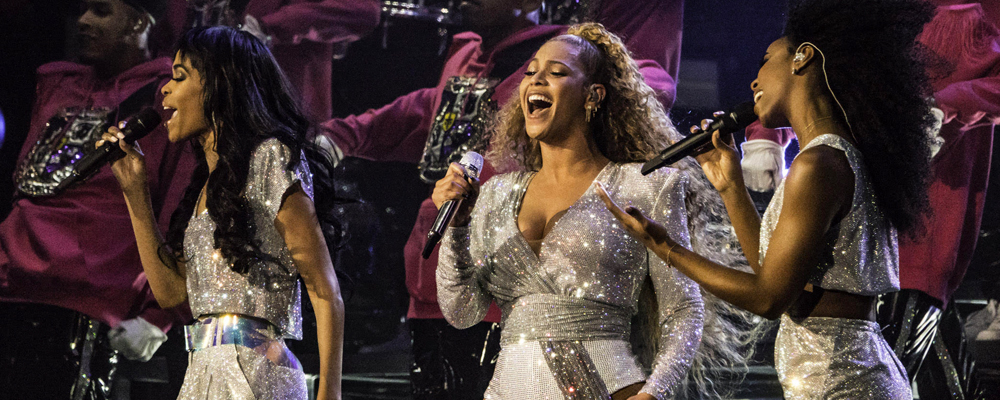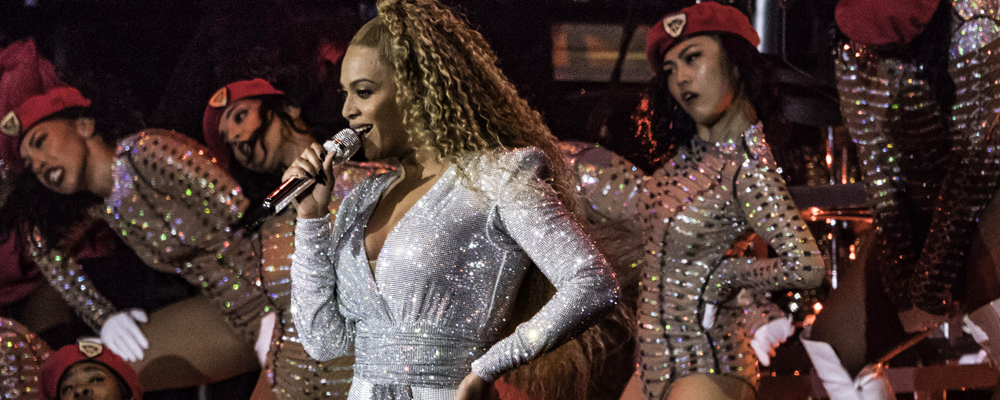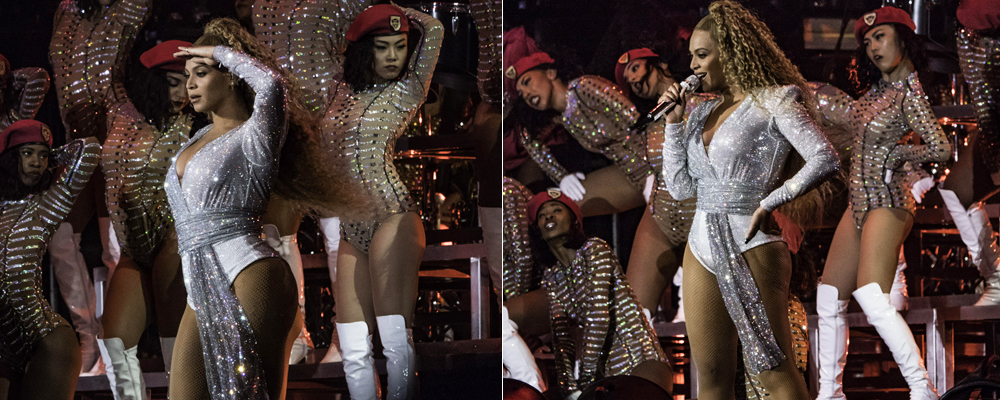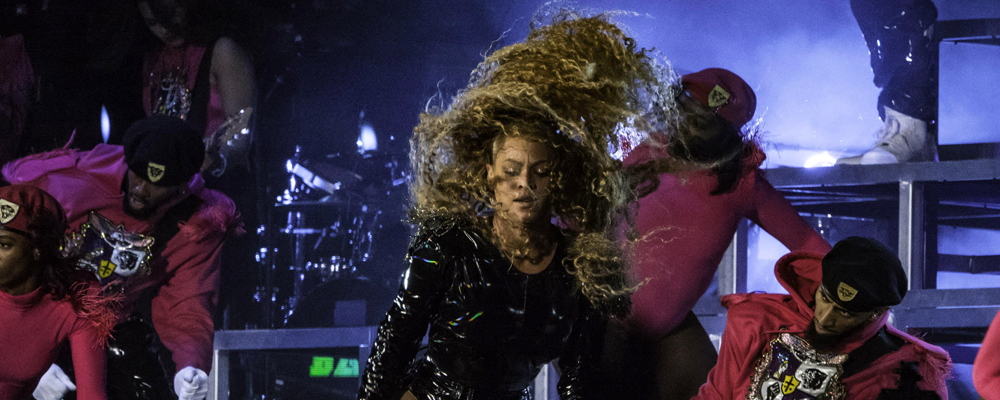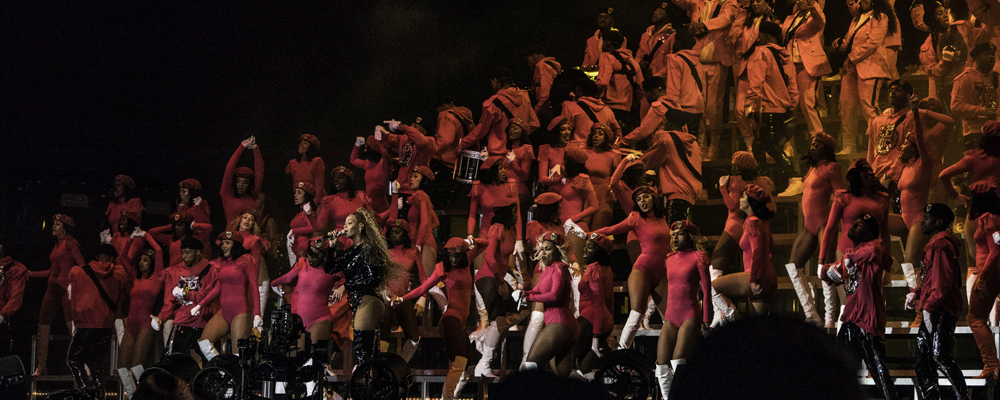Beyoncé Documents Her Historic Coachella Performance With ‘Homecoming’
Adi Mehta
Beyoncé made history at 2018’s Coachella, with a show that so outshined everything else on the bill that the festival was rechristened “Beychella.” The term originally came from a snippet in Beyonce’s own set. Beyoncé was the first African-American woman to headline Coachella, and as such, she took painstaking means to ensure she made an impact. Fitting with the circumstance, the performance was a celebration of black culture, and it was so monumental that “Beychella” went without saying. Now Beyonce has released a Netflix feature titled “Homecoming: A Film By Beyoncé,” as well as “Homecoming: The Live Album,” which chronicles the spectacle, along with footage that gives an inner look into the process by which it came together, the culture that it celebrates, and the artist behind it all.
The interspersed footage brings you back to Beyoncé’s Houston upbringings, with a series of old pictures and videos, comments from acquaintances, and Bey herself narrating. She speaks of how she always wanted to attend a historically black university, praising things like the drum rolls, haircuts, bodies, and swag that define their unique style and traditions. Having gone into the music industry too early to get the full experience of such institutions, she’s finally made her homage to their culture, and goes as far as to say she’s put pieces of her entire 22-year career into her two hour Coachella performance
The show is an over-the-top spectacle with every detail carefully crafted, and an ultimate effect that awes, inspires, and entertains. From the onset, there are roughly two hundred dancers and singers on stage. There are marching bands, step crews, elaborate choreography, brightly colored costumes, and fanciful set design. The style and display is a homage to a very specific African American culture, and particularly the Southern strain of it. Bey took inspiration from the sorority life at historically black universities, known for their drumlines, fashions, festivity, and and more. Through the course of the show, there’s an unabashed embrace of everything Southern. Bey gets bluesy, she gets evangelical, she over accentuates her twang, and always owns it.. There’s also a New Orleans jazz band retro celebration that makes its way in, complete with jubilant horns and Flapper-esque outfits.
The setlist pulls a balanced selection from Beyoncé’s catalogue. Many numbers are cut short to fit into the grand medley of songs, skits, and interjections that was built for the performance, but fans will hardly find this a letdown. There are of course plenty of the bangers that Beyoncé is most known for — “Crazy In Love”, “Drunk In Love,” “Partition.” There’s a stretch of hard-hitting songs mid-set when the swag reaches peak level. “I Been On” is a standout because it’s trippy to see Bey rapping with her voice pitched far down, as if it’s no thing. Softer numbers like “I Care” are peppered throughout for good measure.
Hearing certain songs, like “Formation” and “Yoncé,” with a full live marching band and step routines really brings them to life, and if this amplifies Beyoncé’s aesthetic, a slew of other tunes serve to amplify her message. At one point, the entourage breaks into “Lift Ev’ry Voice And Sing,” historically known as the “Black National Anthem.” On “Don’t Hurt Yourself,” Bey sings with a bold, unapologetic confidence that seems the sonic conveyance of all the drive and determination she mentions in the documentary segment. Of course, female empowerment makes its way in, with songs like “Run the World (Girls)” “Single Ladies (Put a Ring on It,)” as does diversity and inclusion, with “Mi Gente (Remix,) for which Reggaeton sensation J Balvin stops by. Old school tracks like “Baby Boy” and “Check On It” are included for your nostalgic fix, and on top of it all, Beyoncé wasn’t shy with surprise guest. Jay-Z comes out for “Déjà Vu,” Solange dances in one number, and most epically, Bey’s old bandmates Kelly Rowland and Michelle Williams join toward the end to perform three Destiny’s Child songs.
In the intermittent documentary bits, Beyoncé details her struggles along the way. In a particularly tender moment, she recalls how her baby’s heartbeat paused, calling for an emergency C section. The final bit of footage shows Bey with her son, as he innocently sings a song, taking after his mother. But along the way, we hear about the challenges she had with recovering the strength and endurance for dancing and all the demands of her work. We’re taken to clips of choreography sessions, as she explains how she slowly learned to juggle work and family.
Bey speaks about how she found motivation in the need to serve as an example for youth, especially for those who have been historically unappreciated. She quotes Marian Wright Edelman, saying “You can’t be what you can’t see,” and explains how she wants others to see their own value in her. Being the first black woman to headline Coachella offered a perfect opportunity for this, and one that she most definitely seized. She tells of how she insisted on designing every detail of the show, from set designs to costumes to choreography, and of how she’s proud of not just the show, but the process and struggle. Along the way, quotes by the likes of W.E.B. Dubois and Maya Angelou ground her story in a broader cultural history, and it all ends in a joyful attestment to the importance of family. True to her word, Bey has put on a show that is beyond inspiring, and a monumental event in both entertainment and social history. The film captures the show in all its glory, and tells the touching story of its inspiration.
“Homecoming: A Film By Beyoncé” begins streaming April 17 on Netflix and “Homecoming: The Live Album” is available April 17 on Apple Music.

